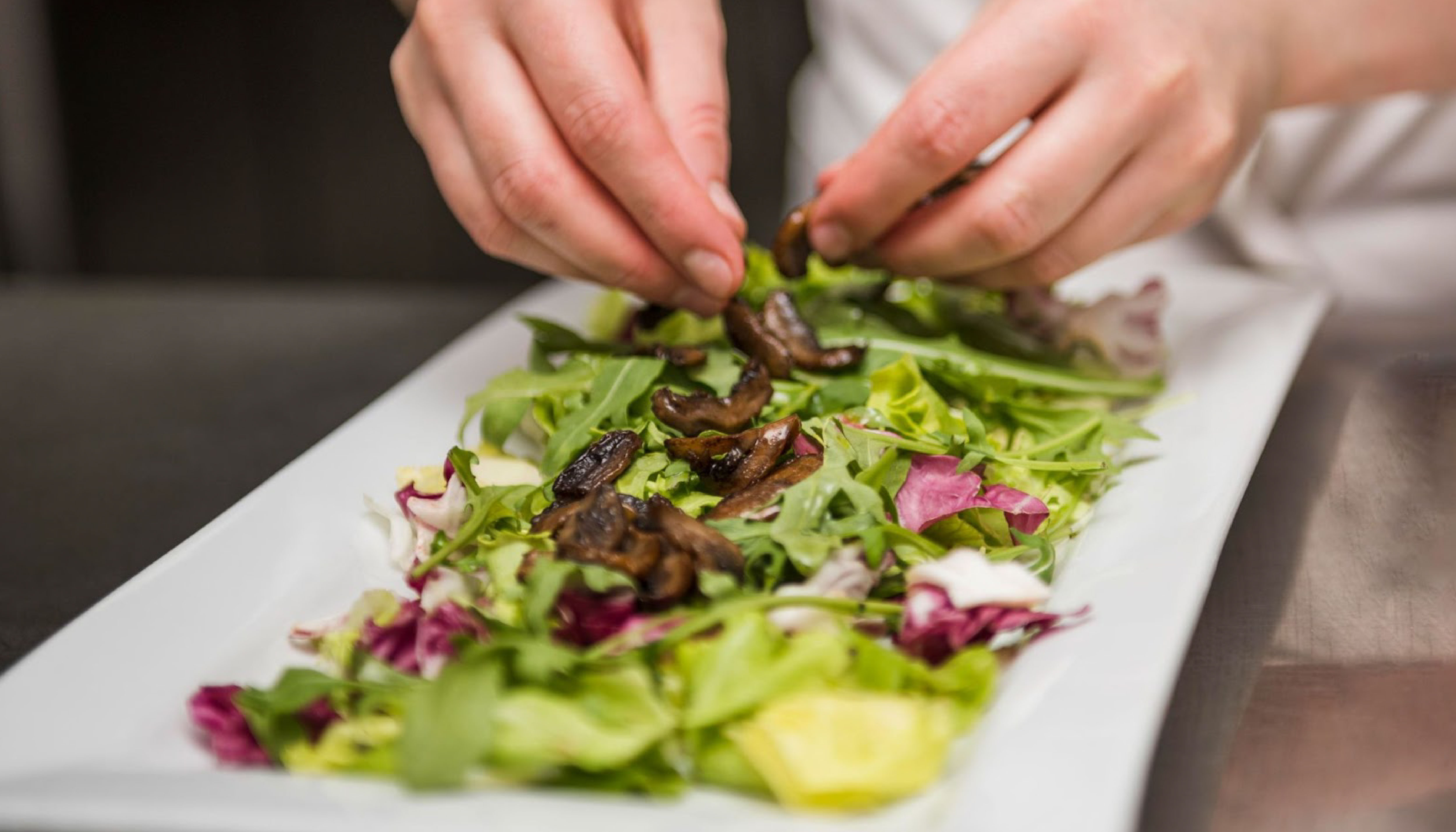
When it comes to creating rich, satisfying meals, umami is the secret weapon in every chef’s toolkit. Often described as the "fifth taste" (after sweet, sour, salty, and bitter), umami brings a deep, savoury note to dishes that makes you go back for seconds. Traditionally, umami is associated with meat, cheese, or broth. But here's the exciting part: you can absolutely master umami without using meat.
At Le Cordon Bleu Malaysia, a top-tier cooking school Malaysia is proud to call home, we believe that plant-based cuisine should never feel like a compromise. With the right ingredients and techniques, anyone from home cooks to aspiring chefs can unlock big flavours in vegetarian and vegan dishes. Whether you're joining a vegetarian cooking class or diving into a plant-based cooking workshop, learning how to work with umami is essential.
What Is Umami?
Umami, a Japanese word meaning "pleasant savoury taste," was first identified in the early 1900s by Professor Kikunae Ikeda. He discovered that glutamate, an amino acid found in many foods, was responsible for this deliciously savoury sensation.
The Science of Plant-Based Umami
So, how does umami work in plant-based cooking? It’s all about glutamates, nucleotides, and fermentation. These compounds stimulate the taste receptors on your tongue, creating a rich, rounded flavour experience.
Here are some high-umami, plant-based ingredients every aspiring chef should know: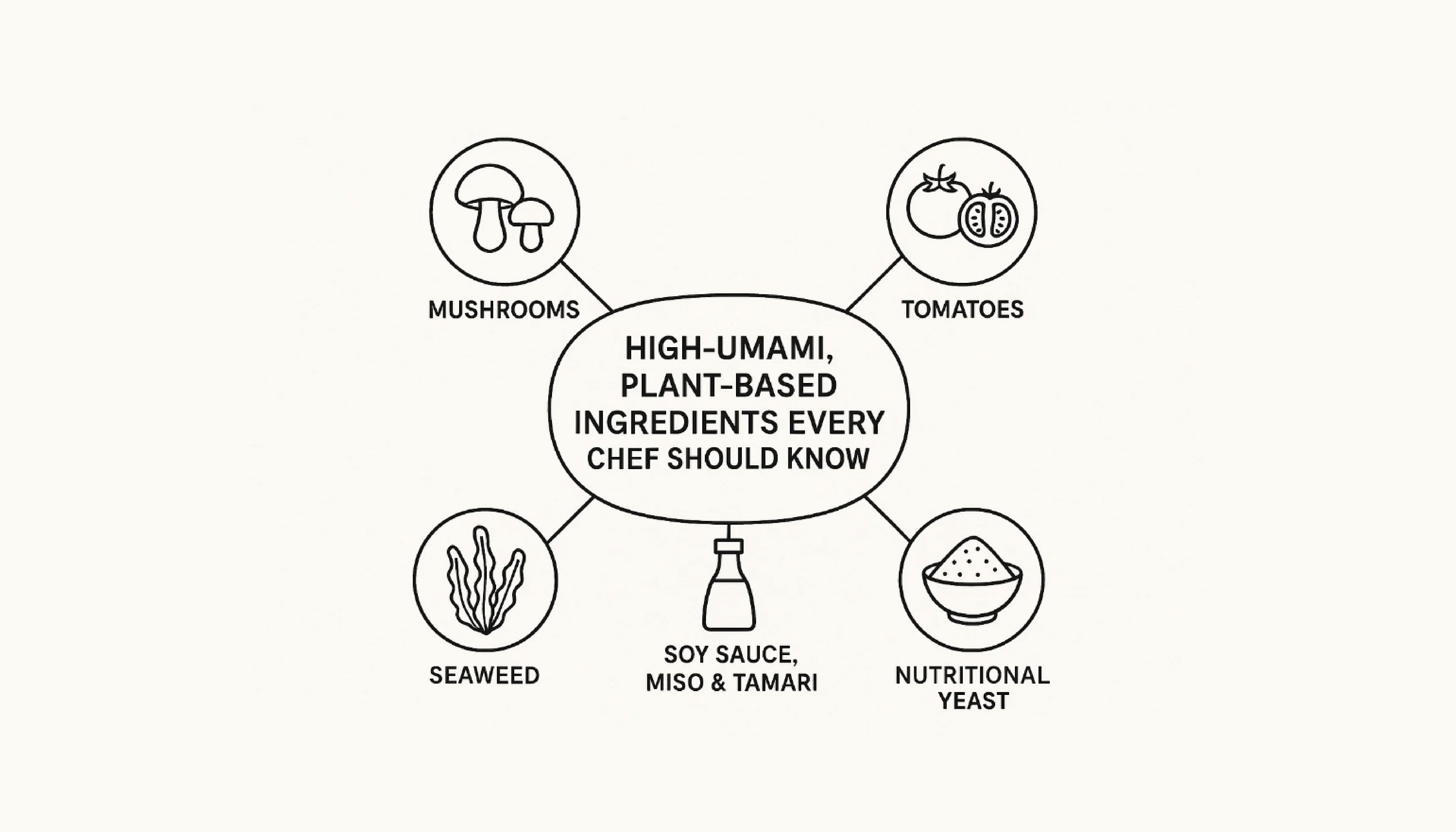
At our Malaysian culinary academy, students get hands-on experience with these ingredients, learning how to layer flavours like the pros in our plant-based cooking workshops and other hands-on modules.
Knowing what ingredients to use is one thing, but how you cook them makes all the difference. Here are key techniques taught in our vegetarian cooking classes and plant-forward culinary programmes:
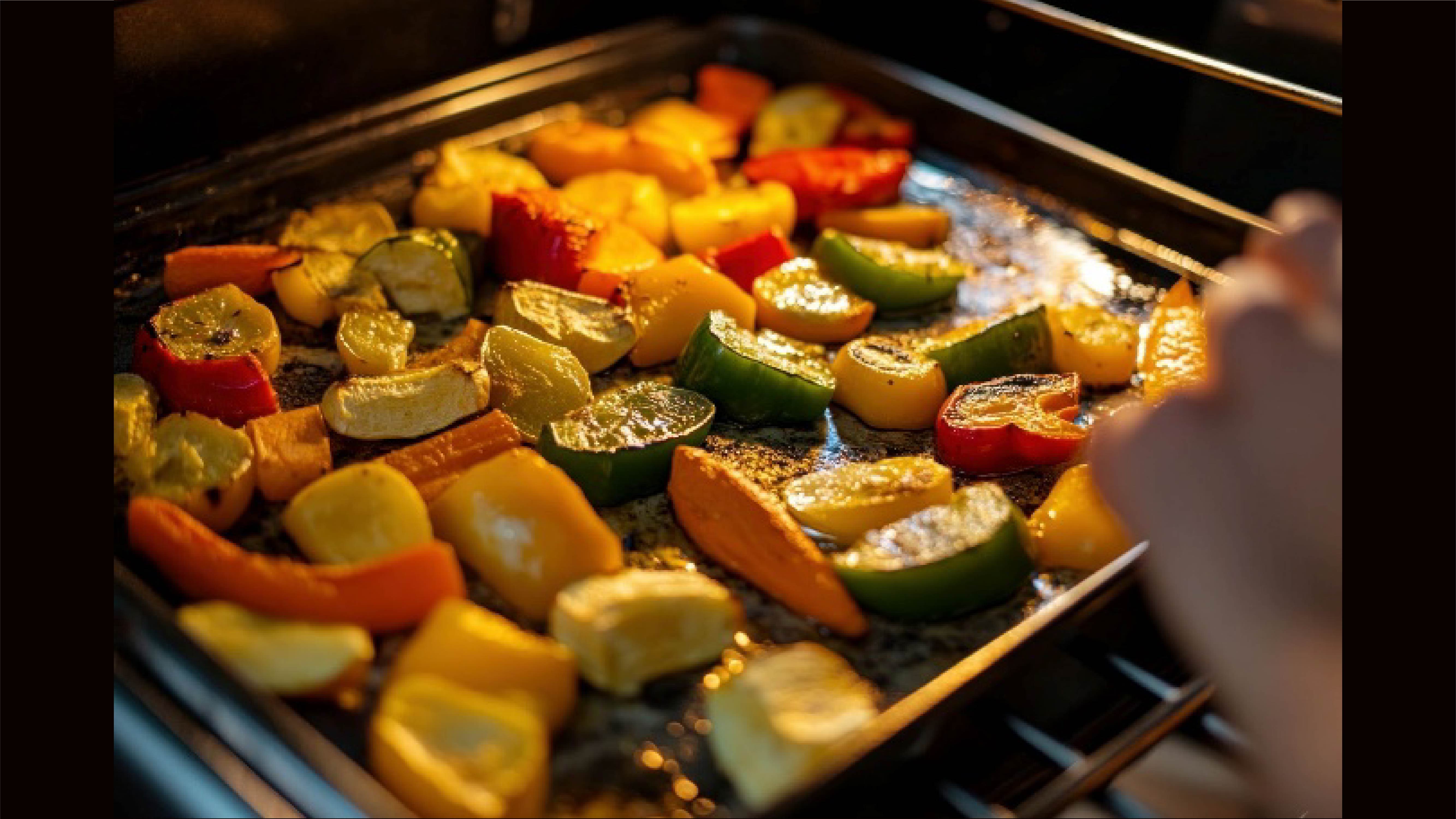 |
1. Roasting and CaramelisationRoasting vegetables like mushrooms, onions, or tomatoes helps break down their natural sugars and intensifies their umami. Think roasted tomato sauces or caramelised mushroom ragù. |
2. DeglazingAfter sautéing vegetables, deglaze the pan with plant-based broth or wine to capture all those browned, flavourful bits. This adds complexity to sauces and soups |
|
|
|
3. Fermentation and AgeingIngredients like miso or black garlic develop flavour over time. Miso offers saltiness and earthiness, while black garlic brings molasses-like richness. |
4. Slow CookingSimmering vegetables, herbs, and spices concentrates flavours. This technique is key in vegetarian broths, soups, and stews taught at our cooking school in Malaysia. |
|
|
|
5. LayeringUse multiple umami sources (e.g., mushrooms + soy sauce + tomato paste) in one dish to create flavour depth and intensity. |
Recipe Ideas from the Le Cordon Bleu Kitchen
Looking for inspiration? Here are a few umami-rich, plant-based recipes our chefs love:
🌱99% Butternut SquashA celebration of the butternut squash in all its golden glory, this dish elevates a single ingredient to gourmet status. Rich, roasted, and delicately seasoned, offering a pure, nearly untouched expression of this humble vegetable. |
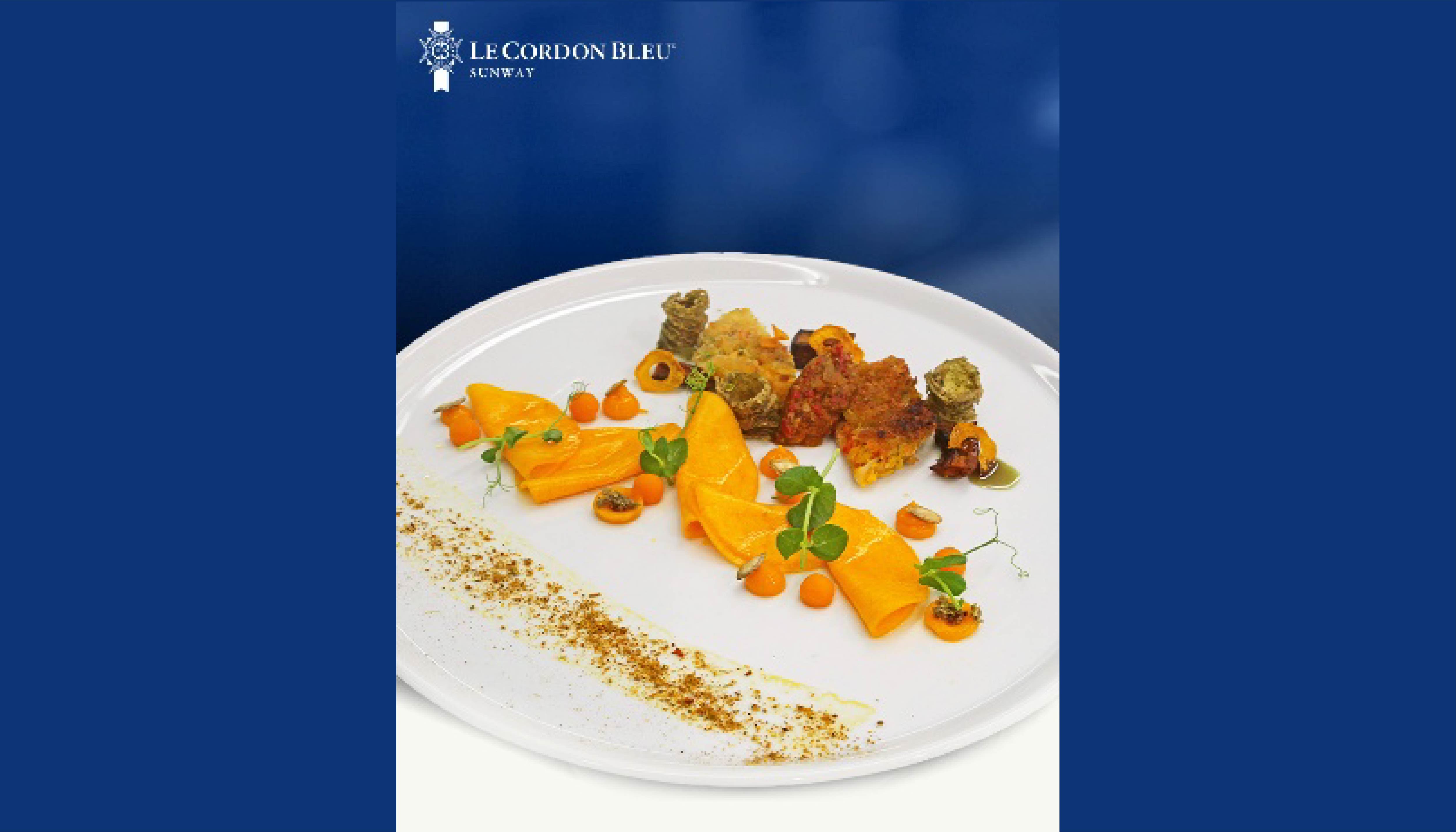 |
|
|
🌱 Potato and Leek Soup with Fine Vegetables JulienneComforting and elegant, this creamy soup blends the earthy depth of potatoes with the gentle sharpness of leeks, forming a silky base that soothes with every spoonful. Delicately julienned seasonal vegetables float on top, adding colour, texture, and a fresh bite to this refined twist on a classic. |
🌱 Coconut and Almond Plated DessertThis dessert brings together the lush creaminess of coconut with the toasted richness of almonds. A smooth mousse and a crisp chocolate tuile, a perfect balance of lightness and indulgence. |
|
Why Umami Mastery Matters in Plant-Based Cuisine
We know that plant-based dishes sometimes get a bad rap for being bland. That’s where umami steps in to save the day.
Great Cuisine Demands Mastery
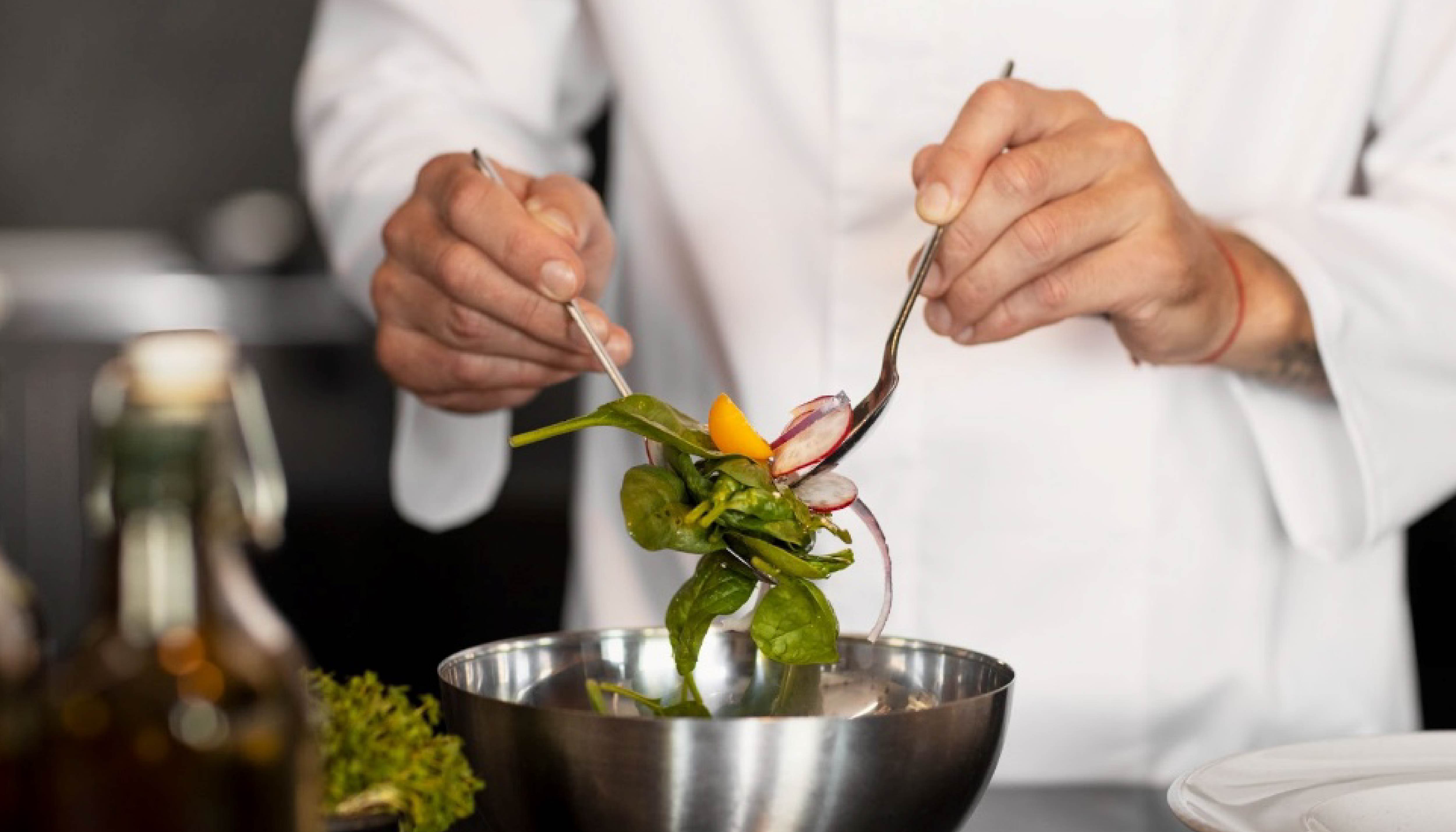
Unlocking umami is like flipping a switch in your culinary journey. With the right training and understanding, you’ll never see (or taste) plant-based food the same way again.
At Le Cordon Bleu Malaysia, we teach students how to transform simple ingredients into extraordinary dishes—without relying on animal products. Whether you're an aspiring chef or a passionate home cook, our plant-based cooking workshops, vegetarian cooking classes, and full professional programmes at our Malaysian culinary academy are designed to help you build lasting, flavourful skills.
Explore our plant-based cuisine courses today and start your journey at the top cooking school Malaysia has to offer.
For more information, WhatsApp us at 019-305 2586 or email to malaysia@cordonbleu.edu.
Copyright © 2026 Le Cordon Bleu International B.V. All Rights Reserved.